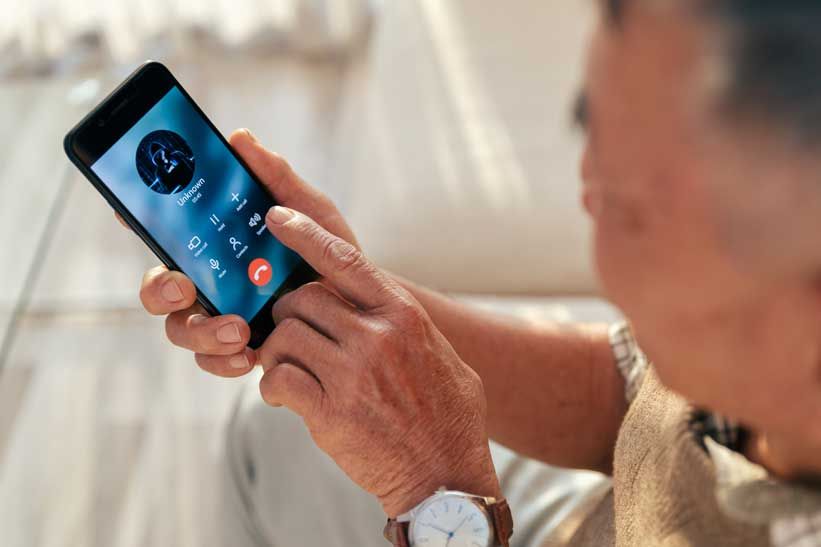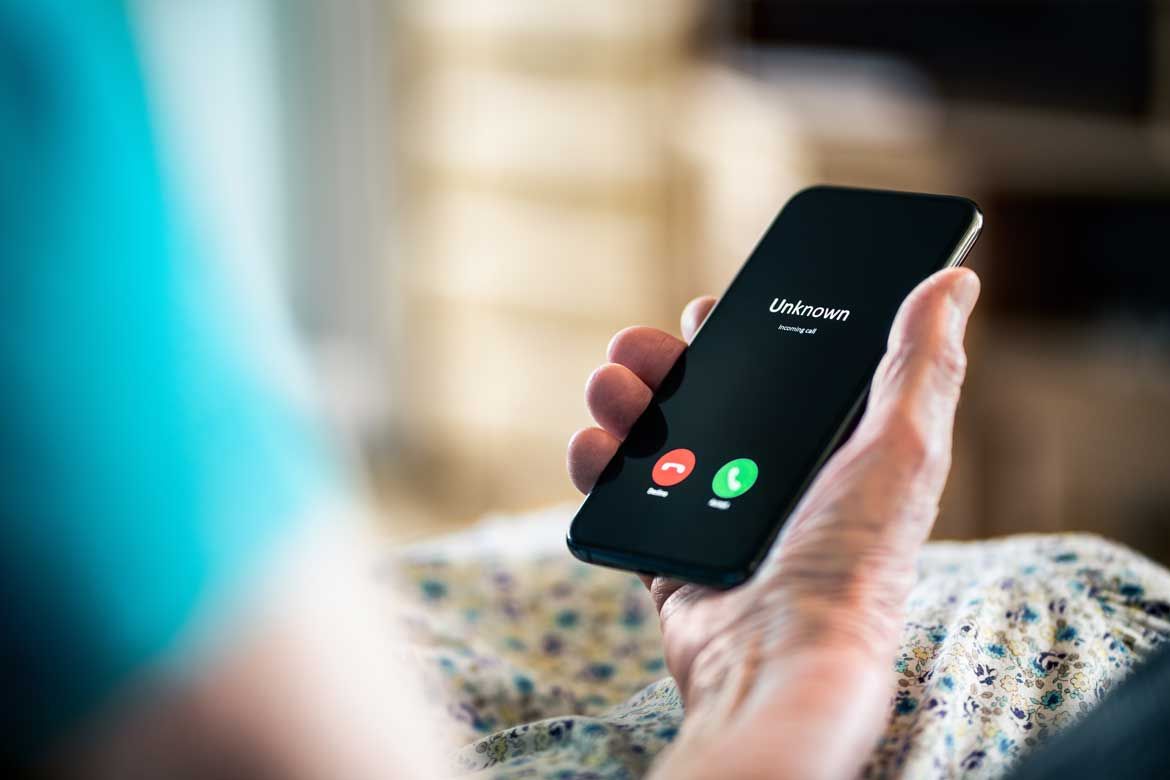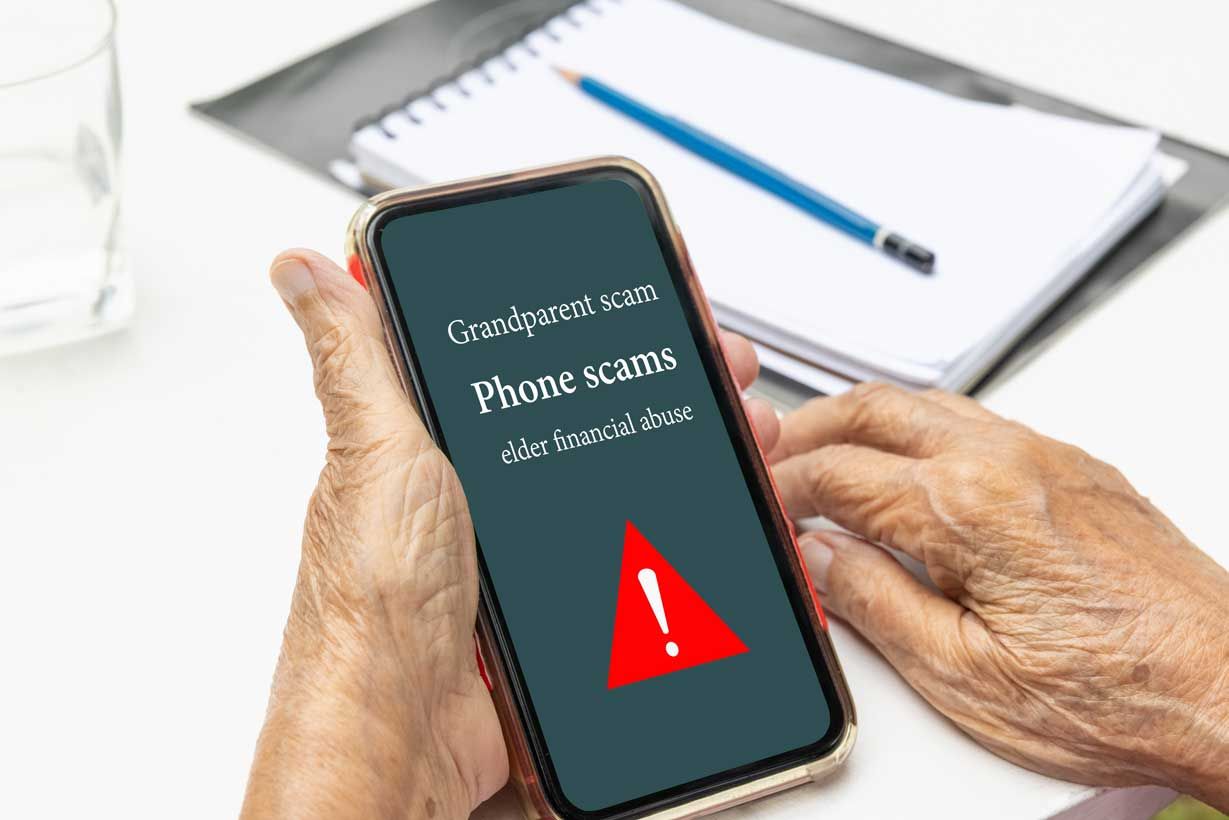Acute and chronic cough: Causes and treatment
Cough is mainly a reflex of the body to get rid of throat irritants in the air passage. Cough can be caused due to infections or viral fevers, but can also be one of the symptoms of diseases related...

In recent years, Medicare scam calls have become an increasingly prevalent issue. These deceitful tactics prey on unsuspecting individuals, often causing emotional distress, financial loss, and potential identity theft. With the rise in such scams, it has never been more crucial to recognize the warning signs and learn how to protect yourself. This blog post will guide you through understanding Medicare scam calls, recognizing common scams, and teaching you how to stop Medicare calls. We will also discuss proactive measures to stop unwanted calls, handle unsolicited Medicare calls, report scams, and protect your personal information.
We will also provide valuable tips for choosing a legitimate Medicare plan and what to do if you’ve fallen victim to a Medicare scam. By becoming more knowledgeable about these scams and taking proactive measures, you can feel empowered to defend yourself and your loved ones from fraudsters.
As we navigate the complex world of Medicare, let us be your guide in identifying the red flags and equipping you with the tools needed to protect yourself from scammers.

Medicare call scams, such as medicare scam calls, are designed to acquire personal information, engage in telemarketing for lead generation, or sell alternative plans to seniors. These fraudulent calls can have severe consequences, such as identity theft, further scams, or financial fraud resulting in drained bank accounts. Scammers may pose as a health insurance provider to deceive you, making it all the more important to understand their tactics and take steps to avoid Medicare scam calls.
The increase in scam calls during enrollment periods is particularly concerning, as this is when beneficiaries may be more susceptible to unsolicited Medicare calls. Awareness of scammers’ tactics and the reasons behind the surge in scam calls helps protect your sensitive information.
Keep in mind that knowledge empowers you to defend against these unscrupulous fraudsters effectively.

Familiarizing yourself with the most common Medicare scams can significantly improve your ability to protect yourself from fraud. In the next few subsections, we will cover specific scams such as offering free medical supplies, early access to vaccines, or refunds for overpayments.
Understanding these scams helps you identify red flags and prevent falling prey to deceitful calls.

The Free Medical Supplies Scam is a prevalent tactic where scammers offer “free” medical supplies or prescription drugs to Medicare beneficiaries in exchange for personal information and Medicare numbers. However, the promised items are never delivered, and the scammers use the acquired information for fraudulent purposes.
Recognizing the red flags is key to avoiding this scam. Scammers may offer you free braces, wheelchairs, or other medical equipment, falsely claiming that Medicare or Medicaid services will cover the cost. Another iteration of this scam is the “free genetic testing” scam, where scammers falsely claim that beneficiaries are eligible for free genetic testing to screen for cancer and other conditions, but their primary goal is to steal your Medicare number or fraudulently bill Medicare for the test.
Maintain skepticism towards unsolicited offers for free medical supplies, especially those requiring your Medicare number or other sensitive information. Beware! If something looks too good to be true, it likely is. Be careful not to be taken in by false promises.

Fraudsters have been known to target Medicare beneficiaries with claims of special access to vaccines, such as COVID-19, in exchange for personal information. The rate of this scam has rapidly risen, especially during the pandemic, as older adults and those with serious long-term conditions are particularly vulnerable.
Examples of the Early Access to Vaccines Scam include:
Stay alert and verify such offers’ legitimacy before providing any personal information or making any payments.

In the Refund for Overpayment Scam, scammers contact Medicare beneficiaries, claiming they are owed a refund for overpayment of benefits and requesting bank account information to steal money. Victims of this scam may experience financial loss, identity theft, and the compromise of personal information.
Protect yourself from the Refund for Overpayment Scam by following these steps:

There are various methods you can employ to prevent unwanted Medicare calls. In the next few subsections, we will discuss specific strategies such as using call-blocking apps, reporting suspicious numbers, and registering on the Do Not Call List.
Implementing these proactive measures helps reduce unwanted calls and shields you from possible scams.
Call-blocking apps and services are tools designed to assist in the prevention of unwanted calls from telemarketers and scammers. These tools help filter out unwanted calls, letting you focus on the important ones. Some popular call-blocking apps and services for both Android and iOS devices include:
By using these apps and services on your cell phone, you can effectively block unwanted calls and have a more peaceful phone experience.
One such app is Aura, which utilizes AI Call Assistant to evaluate calls from unknown numbers and filter out spam and scam calls. Aura can be tailored to meet your call preferences, ensuring that legitimate calls, such as appointments, deliveries, or emergencies, are not missed.
Using call-blocking apps and services helps effectively block unwanted calls, shielding you from potential scams. Take control of your phone and enjoy peace of mind that comes with knowing you’ve taken the necessary steps to safeguard your personal information.

Reporting suspicious numbers is essential for several reasons. Firstly, it helps to prevent scams and fraudulent activities, as scammers often use phone calls to deceive people and steal their personal information or money. By reporting these numbers, authorities can take action against scammers.
Secondly, it protects others from falling victim to scams. When a suspicious number is reported, it can be added to a database or blacklist, which can help warn others about potential scams and prevent them from answering or engaging with these calls.
To report suspicious numbers, you can contact Medicare directly at 1-800-MEDICARE (1-800-633-4227) or their fraud hotline at 1-800-HHS-TIPS. You can submit your complaint about any communication issue to the Federal Communications Commission (FCC) online. This option is fast and easy.. When reporting a suspicious number, be sure to provide the date and time of the call, the phone number from which the call was received, a description of the scam or fraudulent activity, and any additional details or evidence related to the call.
Reporting suspicious numbers aids in the fight against phone scams and helps protect you and others from potential harm.
The National Do Not Call Registry is designed to prevent telemarketers from calling phone numbers listed on it. By registering your phone number on the list, you can reduce the number of unwanted calls from telemarketers. To add your number to the registry, you can visit www.donotcall.gov or call 1-888-382-1222.
Keep in mind that while the Do Not Call Registry prevents sales calls from telemarketers, it does not eliminate all spam calls or calls from scammers. However, it is still a useful tool in reducing unwanted calls and contributing to a more peaceful phone experience.

When faced with unsolicited Medicare calls, it’s essential to handle them properly to protect your sensitive information. One key step is to verify the caller’s identity before providing any information. It’s important to remember that Medicare does not initiate unsolicited calls and request personal information. In the event of receiving an unsolicited call, it’s advised to report the call to Medicare at 1-800-MEDICARE and the Federal Trade Commission (FTC) at ftc.gov/complaint.
Be cautious when receiving unsolicited calls, especially those claiming to be from Medicare or other health insurance providers. Do not provide any personal information over the phone until you have verified the legitimacy of the caller. If the call seems suspicious, it’s best to hang up and report the call to the appropriate authorities.
Careful and cautious handling of unsolicited Medicare calls helps protect you from Medicare phone scams and secure your personal information.

Reporting Medicare scam calls is a crucial part of protecting yourself and others from fraud. By sharing your experiences with the relevant authorities, you contribute to the ongoing efforts to combat these scams and protect vulnerable individuals.
To report a Medicare scam call, you can contact Medicare directly at 1-800-MEDICARE (1-800-633-4227) or their fraud hotline at 1-800-HHS-TIPS. You can submit your complaint about any communication issue to the Federal Communications Commission (FCC) online. This option is fast and easy. Make sure to have your Medicare card handy when reporting the scam.
When reporting a Medicare scam call, be sure to provide the following information:
Reporting Medicare scam calls plays a vital role in combating phone scams, aiding in protecting yourself and others from potential harm.

Safeguarding your personal information is a critical aspect of defending yourself against scams. To protect your personal information from potential fraudsters, it’s recommended not to respond to calls from unidentified numbers and to refrain from sharing sensitive information over the phone.
In addition to being cautious with phone calls, you can also take steps to protect your personal information online. This can include reducing the number of accounts you have on various websites and regularly updating your online passwords.
Remember, scammers often use phishing, vishing (voice phishing), and smishing (SMS phishing) tactics to deceive individuals into disclosing sensitive information via email, phone calls, or text messages. Maintaining alertness and safeguarding your personal information helps lower the risk of falling prey to scams.
If you have fallen prey to a Medicare scam, immediate action is necessary to minimize the damage. The first step is to file an identity theft report, which can help protect your credit and financial accounts. Additionally, you should freeze your credit report to prevent unauthorized access to your credit information.
In the event that your bank account information, Social Security number, or credit card information has been compromised, it’s advised to cancel any current accounts and establish new ones. If you’ve provided scammers with your Medicare number, it’s also recommended that you cancel any credit cards associated with the account and request new ones.
Taking these steps can help mitigate the damage caused by a Medicare scam and protect your financial security and personal information.
When choosing a Medicare plan, it’s important to prioritize transparency and avoid pushy salespeople or unsolicited offers. Selecting a legitimate Medicare Advantage plan can provide peace of mind and ensure you receive the coverage you need.
Seek advice from trusted sources on how to select a valid Medicare plan and be wary of red flags, such as:
Doing your due diligence and seeking guidance from reliable sources aids you in making a sound decision, allowing you to choose a Medicare plan that best suits your needs and avoid scams and fraud.
In conclusion, being aware of Medicare scam calls and taking proactive measures to protect yourself and your personal information is essential. By understanding common scams, utilizing call-blocking apps and services, reporting suspicious numbers, and handling unsolicited calls cautiously, you can significantly reduce the risk of falling victim to these deceitful tactics.
Remember, knowledge is the key to defending yourself against scams. Stay informed, vigilant, and proactive in your efforts to safeguard your personal information and health insurance coverage.
I’m receiving so many Medicare calls because scammers are using telemarketing tactics to try and get people to enroll in alternative health plans. As you age and become eligible for Medicare, you may receive more calls during open enrollment periods when people are checking their coverage options.
Report unsolicited Medicare calls to 1-800-MEDICARE (1-800-633-4227) or the fraud hotline of the Department of Health and Human Services Office of the Inspector General at 1-800-HHS-TIPS (1-800-447-8477). Additionally, you can submit an online complaint to the Federal Communications Commission at consumer complaints.fcc.gov.
Yes, AT&T’s free Call Blocking service includes *61 which blocks unwanted calls. To activate it, press *61 and the “call” button to add the last call received to your blocked call list. Or, you can dial *77 to stop receiving calls from private numbers.
Register your home and mobile numbers on the National Do Not Call Registry, use a third-party app such as Hiya or RoboKiller to block telemarketing calls, and turn on the Silence Unknown Callers feature in your phone’s Settings. That way you should be able to stop continuous spam calls.
To protect personal information from potential fraudsters, it is recommended to refrain from sharing sensitive information over the phone and not to respond to calls from unidentified numbers.

Doris used to work as a Financial Accountant with big private companies for 8 years. Currently she works with brands such as Semrush and vpnmentor to develop high authority and expert content for the users


Unlock expert insights and tips with our exclusive ebook. Enter your email to get your free copy.
Please check your email for a welcome message from Modern60. If it's not in your inbox, kindly check your spam or junk folder
There are no comments yet